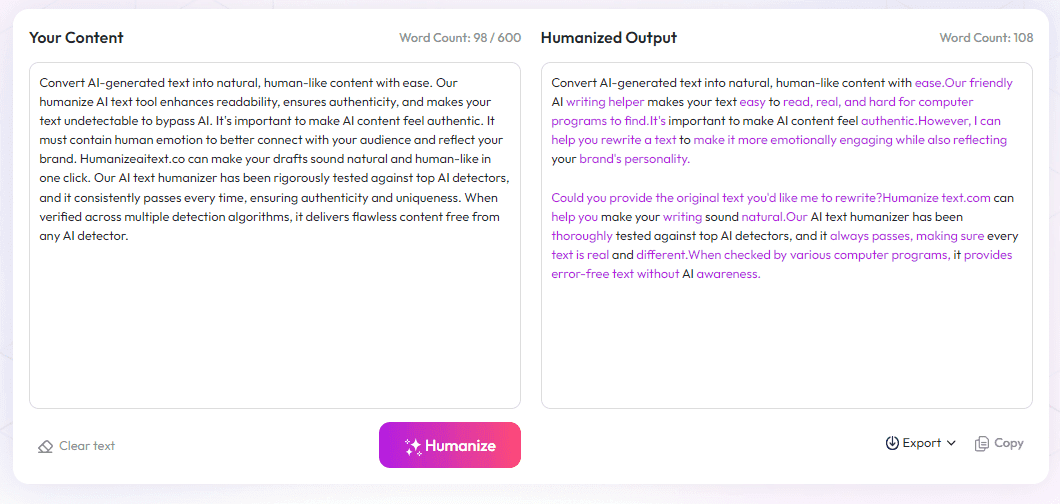Table of Contents
Getting your work into a residency can feel a bit tricky, like trying to win a game you’ve never played before. I know it’s easy to wonder where to start or how to stand out among all the talented applicants. If that’s how you're feeling, don’t worry—I’ve got some simple tips to guide you through the process.
Keep reading, and I’ll show you a straightforward way to apply for author residencies that makes the whole thing less overwhelming. You’ll learn what steps to take, what information to prepare, and how to boost your chances of getting accepted. Before long, you’ll know exactly how to move forward with confidence.
In the next part, I’ll share a clear plan on how to navigate the application process and get your work into your dream residency. Let’s get started!
Key Takeaways
Key Takeaways
- Read each residency’s guidelines carefully to understand their focus and tailor your application accordingly. Organize your materials early to avoid last-minute stress.
- Choose your best work that fits the residency’s themes, write a personal statement that shows your passion and goals, and personalize each application to show you understand their values.
- Avoid sending generic applications; follow instructions exactly, proofread everything, and include all required components like recommendations and a detailed project plan.
- Pick recommenders who know your work well, give them enough time, and thank them afterward. Strong references can boost your chances.
- Start preparing well in advance of deadlines, around 3-4 months early, and keep track of all dates and required materials with a checklist.
- If invited for an interview, practice your responses, prepare questions for the panel, dress professionally, and follow up with a thank-you note.
- Due to COVID-19, virtual interviews and remote interactions are common. Make sure your setup is professional, test technology beforehand, and show enthusiasm through your responses.
- Keep up with trends such as increased applications from international candidates and competitive matches, so focus on making your application stand out through quality and personalization.

How to Apply for Author Residencies
If you want to snag an author residency, the first step is to carefully read each program’s guidelines. Every residency has its own focus—some prioritize fiction, others poetry, or even diverse voices—and understanding what they value will help you tailor your application.
Next, organize your application materials systematically. Create a dedicated folder for each residency you plan to apply to, including your writing samples, personal statement, and project proposal. This way, you won’t scramble to find the right documents at the last minute.
When preparing your writing samples, choose pieces that best showcase your voice and style while aligning with the residency’s focus. Keep files clean, well-formatted, and label them clearly with your name and the title of the work—easy to reference and professional.
Craft a compelling personal statement that explains why you want this residency, what projects you hope to develop, and how the experience will benefit your growth as a writer. Be specific and honest—residencies look for genuine passion and clear goals.
Tailor each application to fit the specific values of the residency. Avoid generic submissions; instead, demonstrate that you understand their mission and how your work complements it. This might mean highlighting particular themes or incorporating language from their website into your statement.
Pay close attention to the application instructions—some residencies might require recommendations, a CV, or a detailed project plan. Missing components can disqualify your submission, so double-check all requirements before hitting send.
Many successful applicants also follow up politely if the residency allows it. A brief thank-you note after submitting can reinforce your enthusiasm for the opportunity and keep you fresh in reviewers’ minds.
In the increasingly competitive world of author residencies, applying with a clear, organized, and personalized package significantly raises your chances. For inspiration, look into common application questions and tips from seasoned writers who have navigated this process smoothly.
If you're interested in improving your overall writing skills before applying, exploring prompts and exercises can boost your confidence. For example, you might find helpful some winter writing prompts or other creative exercises to hone your craft.
Remember, applying to residencies isn’t just about sending in work—it’s about presenting your best self as a writer ready for growth. Take your time to craft each application thoughtfully, and don’t be discouraged by rejection. Each submission is a step closer to your creative goals.

Tips for Crafting a Standout Personal Statement
Your personal statement is your chance to tell residencies who you really are beyond your CV and writing samples. Be honest and specific about your goals and passions.
Start by outlining why you're interested in the residency program and how it aligns with your career aspirations. Use concrete examples to demonstrate your commitment and experience.
Highlight any unique background, skills, or perspectives you bring to the table, especially if they align with the program’s focus. This makes your application memorable.
Keep your tone genuine and avoid clichés—write as if you're sharing your story with a close friend, not a robot. Authenticity can often be more compelling than polish.
Make sure to address how the residency will help you grow and what you can offer in return. Residency programs want applicants who are passionate and ready to contribute.
Proofread several times, and consider asking a mentor or peer for feedback to catch anything you might have missed. A polished, heartfelt statement can make all the difference.
How to Tailor Applications to Specific Residencies
Every residency program has its own vibe and priorities, so customizing your application for each one is key. Do your homework first.
Read their website thoroughly—note their mission, core values, and any specific themes or projects they highlight. Incorporate some of this language into your personal statement.
Match your writing samples and project ideas to what they seem to value most. For example, if a program emphasizes diversity, highlight your experiences working with underrepresented voices.
Address specific prompts or questions from their application meticulously. Ignoring these can signal a lack of interest or attention to detail.
Use the program's contact information to clarify any questions, and if appropriate, mention why that particular residency appeals to you during your correspondence.
Common Mistakes to Avoid in Residency Applications
Everyone makes mistakes, but some can be a quick ticket out of your chances. Watch out for these pitfalls.
Sending generic applications to multiple residencies without customization shows a lack of effort. Personalization is essential.
Failing to follow instructions carefully—missing documents, exceeding word counts, or neglecting required recommendations can disqualify your submission instantly.
Uploading poorly formatted or sloppy writing samples that don’t showcase your best work can hurt your impression. Always review formatting before submitting.
Overhyping yourself or sounding overly modest can both backfire. Be honest but highlight your strengths confidently.
Neglecting to proofread for typos and grammatical errors makes you look unprofessional. Use tools or ask someone else to review your work.
Making the Most of Recommendations & References
Letters of recommendation can make or break your application, so choose recommenders who truly know your work and character.
Give your recommenders ample time and provide them with your resume, personal statement draft, and highlights of your application to help them write a solid letter.
Ideally, select references who can speak to your skills relevant to the program, such as your research ability, work ethic, or creativity.
Don't be shy about following up politely to see if they've completed your letter, and thank them afterward. It keeps relationships positive and shows professionalism.
If you lack a strong recommendation, consider seeking out mentors or supervisors who can provide a candid, positive assessment of your potential.
Important Application Deadlines and Timing
Residencies usually have strict deadlines—missing these can mean waiting another year. Make a checklist of all your applications.
Start preparing your materials early—at least 3-4 months before the deadline. This allows time for revision and unforeseen delays.
Remember to account for interview scheduling and follow-up correspondence. Staying organized saves stress.
Many programs open their applications in the fall with deadlines in late fall or early winter. Keep an eye on their websites and subscribe to updates.
Utilize digital tools like calendar reminders or dedicated spreadsheets to track application statuses and deadlines efficiently.
Interview Preparation Tips
If your application gets you into the interview stage, congratulations—you're almost there. Now, it’s time to nail it.
Research common interview questions and practice your responses, focusing on your experiences, goals, and why you want that specific residency.
Prepare your own questions to ask the interviewers—show that you’ve done your homework and are genuinely interested.
Dress professionally and be punctual—whether virtual or in person. First impressions still count.
Practice explaining your work and ideas clearly, avoiding jargon and speaking confidently. Remember, they want to see who you are under pressure.
Finally, follow up with a thank-you note that reiterates your interest and appreciation for the opportunity.
How COVID-19 Has Changed Residency Application Processes
The pandemic has shifted how residencies evaluate applicants, with virtual interviews becoming the norm.
This change means your online presence and video interview skills are more important than ever. Test your technology beforehand.
Some programs have implemented virtual tours or digital meet-and-greets. Take advantage of these to get a feel for their culture.
Make sure your environment during virtual interviews is quiet, well-lit, and professional-looking. Little details matter a lot.
Since in-person interactions are limited, double down on your written application to stand out. Show genuine enthusiasm through your stories and responses.
Statistics & Trends Impacting Residency Applications in 2025
This year, the number of applicants to Family Medicine residencies increased by over 8%, reflecting growing interest in primary care fields.
IMGs continue to apply to more programs than U.S. graduates—average applications per IMG to some specialties surpass 50, especially in competitive fields like Surgery and Pathology.
The total number of residency positions increased slightly, but the matching process remains competitive, with a 94.3% fill rate in the 2025 match.
Notably, the number of non-U.S. citizen IMGs applying also grew by over 14%, indicating that global applicants remain a significant part of the pool.
Understanding these trends can help you plan your applications better—whether to target certain specialties or focus on strengthening your overall profile. For more detailed insights, check out the listing of 2025 national residency match statistics on *AMA*.
FAQs
First, review the residency's application guidelines and deadlines. Prepare your writing samples, cover letter, and project proposal. Then, submit your application through the specified channel before the deadline. Ensure all required documents are complete.
Applicants usually need to submit writing samples, a project proposal, a resume or bio, and a cover letter. Some residencies may require references or a portfolio. Verify the specific requirements on the residency's official website before applying.
The duration varies by program, but most residencies last from a few weeks up to three months. Check each program's specific timeline and availability to plan your application and stay accordingly.



